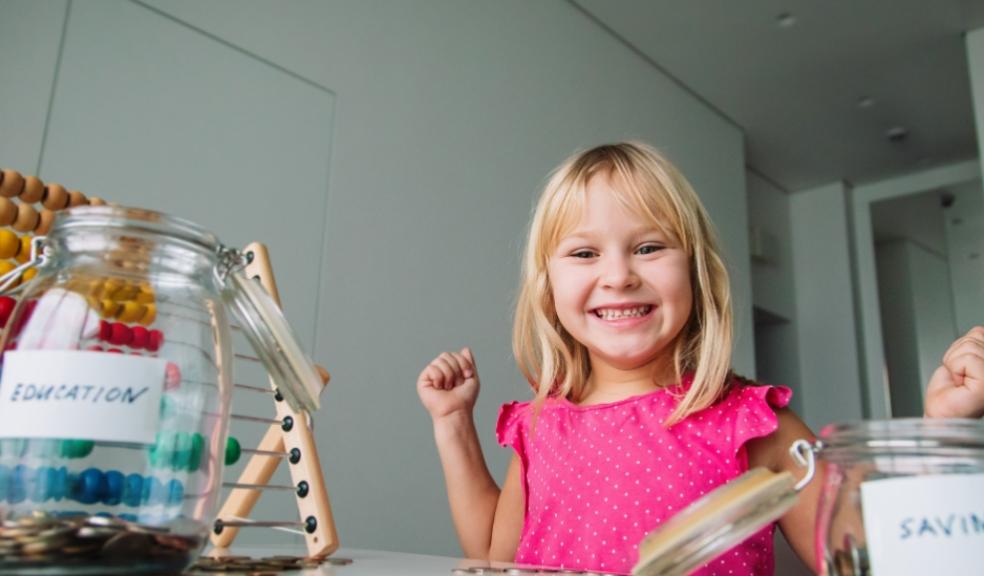
Children's pocket money is outpacing inflation thanks to generous parents
KIDS’ ECONOMY 2022/23: POCKET MONEY ANNUAL REPORT REVEALS CHILDREN’S EARNINGS OUTPACE INFLATION
- The NatWest Rooster Money Pocket Money Index, a study of over 125,000 children, is the most comprehensive analysis of the UK youth economy this year and reveals the trends shaping young people’s finances
- Kids’ average earnings increased 11% to £338.84 a year (or £6.42 per week), outpacing CPI inflation which stands at 10.4% for the same period1
- Six-year-olds saw the biggest pay rise, welcoming 34% YoY growth
- Kids are more entrepreneurial than ever, fetching 16% more from side hustles YoY
- Far fewer families are committing to a regular, fixed allowance as the cost of living crisis continues, favouring one-off payments for chores and special occasions
- Despite soaring inflation, kids maintained an 8% savings rate, perhaps taking cues from their parents on getting serious about budgeting
British kids have had their pocket money shielded from inflationary pressure by their parents and guardians over the past year, the most in-depth study of the UK’s youth economy in 2023 has indicated.
The latest findings from NatWest Rooster Money’s annual Pocket Money Index report show that kids’ average annual income has increased by 11% in 2022/23, working out at £6.42 per week. This is despite pocket money routines becoming far less consistent, with only 57% of kids receiving a regular allowance - down from 65% in 2021/22 - as the cost of living crisis has persisted.
Instead of committing to fixed recurring payments, parents have indexed more heavily on one-off payments (which accounted for 39% of earnings in 2022/23, up from 34% in 2021/22), using moments like special occasions and good behaviour as opportunities for extra generosity.
Entrepreneurial kids, meanwhile, are turning more to side hustles to keep up a steady stream of income - with those who do raising an average of £50.84 each outside of chores (16% more than they did in 2021/22). Average earnings for babysitting rose 24% to £20.55, revenues from reselling possessions like clothes crept up 6% to £26.26, and tutoring benefitted from a huge premium, with earnings per job soaring 102% to £16.95.
A deeper dive into the study of over 125,000 kids’ pocket money data follows…
INCOME BY AGE: A bumper pay rise for six year-olds, while 16 is the peak
While many would expect pocket money to rise with age, in 2022/23 it was 16-year-olds who enjoyed the highest weekly pay cheque, at £12.75. 17-year-olds took home a slightly lower £12.59 - perhaps a nod to increasing financial independence starting to set in. It was six-year-olds who saw the biggest pay rise, welcoming 34% year-on-year growth to reach £3.94.
EARNING: Car cleaning is big business, quality time is money and maths adds up
The top-five most lucrative chores of 2022/23 were cleaning the car (£2.46 per-job average), helping with the shopping (£1.11), hoovering (£0.96), doing the laundry (£0.67) and helping in the garden (£0.64). But clearly pay isn’t everything, as the top-five most commonly completed chores were different: making the bed, emptying the dishwasher, clearing the table, cleaning the bedroom and looking after a pet. Other earners included Duolingo lessons, smiling for photos, learning to code, making Dad a coffee, or even spending quality time with the family.
Nearly half (47%) of parents made completing chores a condition of regular pocket money, but there was also a massive boom in ‘boosts’ - that is, one-off payments kids receive as top-ups. Reasons ranged from tooth fairy visits (£3.24), birthdays (£47.01) and good school results (£15.98) to simply doing homework (£6.76) or being good (£13.21). And maths is the most common subject for school-related boosts, fetching £8.12 a pop.
SAVING: High-flying savers and a record year for gaming currencies
Rooster Money kids saved an average of 8% (equivalent to £27.94) of their earnings over the course of the year - an impressive feat given persistent inflation. Examples of targets kids actually managed to reach include saving £1,000 to put into a savings account, £200 for an iPhone and £900 for a travel fund.
There were some highly ambitious savings goals in the mix too, including becoming a ‘millionaire’ by saving £999,999.99, buying a £300,000 house for Mum, bagging a state-of-the-art grand piano for £75,000, and of course the timeless ambitions to own all manner of supercars.
The number of goals set for gaming currencies shot up by a huge 220% in 2022/23 - taking it from 11th most-popular savings category right up to fifth.
SPENDING: Shopping in person is back and Co-op takes the crown
As we settle further into the post-Covid era, the most popular places to spend in 2022/23 were dominated by brands with a physical presence, suggesting brick and mortar will still be important to the next generation of consumers. The top five included Co-op, Tesco, McDonald’s and Sainsbury’s, while digital brands like Amazon, PlayStation and Xbox slid down the rankings. Public transport rose two spots, to number seven, again suggesting a return to being out and about - and with it, an increase in independence and freedom.
Konnie Huq, children’s author and presenter, comments:
“It’s great to see entrepreneurial spirit when demonstrated by the youth of today. Growing up, I didn’t have pocket money, which meant making my own way with a Saturday job and being mindful about how I spent and saved - it’s really encouraging to see those behaviours still present in today’s kids. Teaching children from an early age about the value of money and the importance of using it wisely is crucial, especially in these uncertain times. As a parent I know I want to make sure my children are well equipped to be financially wise and responsible in the world ahead.”
Will Carmichael, CEO and Founder of NatWest Rooster Money, says:
“Faced with less regular pocket money, kids have been really entrepreneurial and proactive this year. This is true in its purest sense with the soaring proceeds from side hustles, but also in the business-minded approach they’re taking to earning around the house - managing to monetise not just chores but things like learning and personal development. I certainly wasn’t paid for doing my homework as a child! Every year I’m inspired to see the creativity and ambition of these young people and how engaged families are with pocket money and earning despite times being tough, which can only be a positive sign for the future.”
















